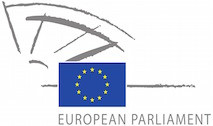Blog
Program Areas
-
Blog
comScore Announces Its Bid Ratings™ Solution is Now Live in Eight Industry-Leading Programmatic Buying Platforms
Trusted comScore quality attributes now available for pre-bid programmatic decisioning globally
RESTON, VA, October 29, 2015 – Today, comScore, Inc. (NASDAQ: SCOR), a global media measurement and analytics company, announced that its pre-bid technology solution, Bid Ratings™ (link is external), is now live in eight leading programmatic buying platforms, including AppNexus (link is external), Centro (link is external), Netmining (link is external), RhythmOne (link is external), TubeMogul (link is external) and Turn (link is external). comScore Bid Ratings allows media buyers to surface quality programmatic inventory by bidding only on inventory that meets their campaign requirements. The solution is available in several global markets, such as Canada, France, Germany, Italy, Mexico, Spain, the U.K. and the U.S. comScore Bid Ratings is the first solution out of the company’s Industry Trust Initiative, a corporate program that seeks to bring trust and transparency to programmatic. Through Bid Ratings, media buyers can purchase inventory that is based on key comScore attributes, such as viewability, invalid traffic (IVT), brand safety, contextual categories, page content and site rank. These attributes leverage existing comScore data assets and methods, including those that power comScore Media Metrix®, Video Metrix® Rankings and validated Campaign Essentials™ (vCE®). The solution also incorporates pre-bid attributes from Proximic (link is external), a company acquired by comScore in mid-2015. “In order for programmatic to reach its true potential, the market needs trusted and independent metrics,” said Anne Hunter, senior vice president, comScore. “Buyers want to know that there is consistent quality across the inventory they are buying, ensuring their money is not being wasted. By collaborating with these initial leading DSPs to bring Bid Ratings to buyers, we’re putting independent metrics in the places buyers need them, paving the way for a more transparent and trusted programmatic environment.” --- For full article, visit http://bit.ly/1KKsit3 (link is external) -
Blog
Refuel Agency Finds that Over Half of Gen Z Teens Are Texting or Playing Mobile Games While at School
Youth marketing specialist Refuel Agency presents proprietary study on Gen Z teenagers and their digital lifestyles.
(NEW YORK, NY) Dec 3, 2015 – Today, Refuel Agency, a leader in Youth, Military and Multicultural marketing and media placement, has released findings from its new Gen Z Teen Digital Explorer survey. The survey explores topics such as digital usage, tech ownership, purchasing habits, media perceptions and more. Gen Z Teen Digital Explorer is one of five studies reported this year by Refuel Agency, the youth and millennial insights expert. Refuel Agency’s flagship College Explorer, now in its 15th year, continues to be the largest and most comprehensive college study available today. Gen Z teens (ages 13-15) are arguably the “tip of the spear” when it comes to digital technology and social networking. These product and brand influencers, raised in the era of smartphones, do not know a world without social media. Although similar to their older millennial teen counterparts in many ways, some fascinating and important differences do exist when it comes to consuming technology and projecting future trends. This report dives into these differences as well as their digital preferences. Most interestingly for marketers, the findings indicate a very strong and receptive appetite for digital advertising. “Gen Z teens are connected 17 hours per day. This stat proves once again that it is vitally important for brands and marketers to understand how and where they spend their time and what makes this generation take notice in an oversaturated digital world,” says Derek White, President and CEO of Refuel Agency. “With over $88 billion spent annually by the youth market today, this key demographic group cannot be overlooked.” SOME HIGHLIGHTS: Total time spent with tech devices is on par with older teens at 17 hours, though they do spend more time with tablets and MP3 players Compared to older teens, they are more likely to try out new apps. In fact, they are more likely to try out 7 or more new apps per month Instagram and Kik are the clear leaders of messaging for this demographic Apple, Samsung and Google are the top tech brands Gen Z teens say they cannot live without --- Full article available at http://bit.ly/1RikiyI (link is external) -
Intersection Media (“Titan”) is a full service media company specializing in ‘People in Transit' advertising. We are the leader in transit advertising in North America, providing sales, marketing, creative, research and maintenance of inventive outdoor advertising campaigns on bus, rail, street furniture, telephone kiosks, street banners and in airports. Intersection Media (“Titan”) also leads the way in the development and successful introduction of market leading digital and mobile platforms. As of June 23, 2015 it was announced that Titan will become Intersection. An urban experience company that combines expertise in technology, user experience and interactive engagement at the convergence of digital and physical worlds to improve life in cities around the world. Our media: The intersection of Out-of-Home, digital and mobile media is incredibly important to the future of the industry and to the future of Intersection. Intersection has been a consistent trailblazer with new and innovative digital products. Our Out-of-Home media delivers a combination of captive audiences and long dwell times - the perfect environment for dynamic digital media. To date, our digital network consists of more than 2000 screens in markets like Chicago, Boston, Philadelphia, and San Francisco, with rapid and immediate growth planned in New York in 2015 with LinkNYC. LinkNYC is a network of cutting edge and ubiquitous communications platforms that offer residents and visitors unparalleled access to free public Wi-Fi, transforming the City’s streetscape. In addition to free voice and video calls for users, each Link will also include interactive tablets and digital displays for advertising, sponsored content, community messaging and more. The role: The nation's fastest growing out-of-home media company is expanding its dynamic team in our New York office. Intersection is seeking an upbeat, energetic and self-motivated Account Executive. If you are looking to build your career in sales, this job is for you! The ideal candidate would feel comfortable working in a competitive, high energy, fast paced environment. The applicant must be enthusiastic, hardworking and have the desire to win by continually meeting and exceeding the needs of our customers. Responsibilities will include but are not limited to: Developing lasting and profitable relationships with new and existing customers in order to maximize revenues for the company Understanding and articulating information regarding our company and offerings Generating new business by cold calling, proactively seeking out leads and meeting with customers Preparing detailed proposals and presentations in order to meet and/or exceed monthly and annual sales and revenue objectives --- Full role description available at http://bit.ly/1mMlJul (link is external)
-
Blog
Viacom and Canvs Partner to Decode Complex Millennial Language in Marketing Campaigns for the First Time Ever
Canvs Fuels Viacom Velocity's Updated Echo Social Graph 2.0, Offering Marketing Partners Unprecedented Analysis of Consumer Emotions by Identifying 56 Unique Feelings
NEW YORK--(BUSINESS WIRE)-- Viacom Velocity (link is external), Viacom's (NASDAQ: VIAB, VIA) integrated marketing and creative content team, today announced a partnership with Canvs, the technology platform that measures and interprets emotionality in language. The alliance provides an unprecedented advantage to Velocity's clients by measuring consumers' emotional reactions to marketing campaigns. Velocity's updated Echo Social Graph product ("Echo 2.0."), Viacom's proprietary tool that measures the effectiveness and virality of custom creative marketing campaigns, will integrate Canvs' emotional analysis to deliver deeper insights to marketing partners about the consumer impact of a campaign. Canvs' sophisticated capability tracks a broad range of 56 unique emotions, which is a huge increase over the three general feelings - "positive-negative-neutral" - typically tracked by sentiment analysis. Additionally, Canvs' extensive database is uniquely keyed into millennial slang and social media language. Until now, Canvs has focused mostly on translating audience feelings about television shows, but Echo Social Graph's advanced capability to track social media conversations for clients across five platforms -Twitter, Facebook, Tumblr, YouTube, and Instagram - opens new ways to utilize Canvs. "Viacom's Echo Social Graph has already been providing clients a unique advantage in measuring social media campaigns by mining data on five social media platforms," said Lydia Daly, Vice President of Viacom Velocity. "Layering Canvs' analytics into Echo 2.0 deepens the insights we provide our clients like no one else can in the industry, and our team uses this information to ensure that we deliver our partners' brand messages with maximum effectiveness. Finding the most innovative ways to connect creativity and data science is what keeps us - and our clients - ahead." --- Full article available at http://bit.ly/1KpUCkp (link is external) -
Columbia, MD - Merkle (merkleinc.com (link is external)), a leading technology-enabled, data-driven performance marketing agency, announced its acquisition of dbg (dbg.co.uk (link is external)); a UK-based, independent marketing solutions agency that specializes in optimizing client data to make compelling connections to drive growth and improve marketing and business performance. Launched in 2007, dbg specializes in the use and assimilation of first, second, and third-party data, employing analytics and technology to create informed customer interactions that drive growth for brands. The company delivers expertise in database marketing, campaign management, and marketing automation to a wide range of European and international clients, including Renault, Ted Baker, Center Parcs, RBS and VW. Dbg’s team of 140 experts will join Merkle’s Marketing Solutions Group, bringing Merkle’s total number of UK-based employees to more than 300 and more than 3,000 worldwide. This is the second in a series of planned European acquisitions designed to reinforce Merkle’s global presence. It follows the company’s 2015 acquisition of Periscopix (periscopix.co.uk (link is external)), a leading London-based performance marketing and programmatic agency. Tim Berry, who formerly served as president of Merkle’s CRM solutions, will assume the role of president of Merkle Europe, driving the agency’s overall European growth strategy. “We are thrilled to welcome dbg to the Merkle family,” said David Williams, Merkle’s chairman and CEO. “As the needs of our European and multi-national clients expand, it’s important for Merkle to build competencies that complement our U.S. business model, working with in-country professionals who share our values of hard work and entrepreneurial spirit.” --- Full article available at http://bit.ly/1QDkLsz (link is external)
-
ActionX is the leader in mobile app and cross-screen retargeting. We work with the biggest transactional brands to drive cross-screen revenue and maximize lifetime value. How Mobile App and Cross-Screen Retargeting Works: Automatic, deep segmentationbased on your users’ activity—down to the product level. Dynamic creative with messaging tailored to each user, designed to drive significant RoAS lift. Deep links tied to the point of transaction deliver customers to the point of purchase, maximizing conversion rates. Easy implementation with our Crossfire tags, or share data with us from our direct integrations with mobile analytics providers (AD-X, AppsFlyer, Apsalar, HasOffers, Kochava, TapSense, etc.). Cross-screen attribution connects users’ activities across devices for understanding, behavior, and attribution. RoAS optimization focuses marketing activity on what drives revenue. Client Testimonials: "Since starting our engagement with ActionX, JackThreads has realized an impressive return on ad spend, and we are excited to expand our partnership as we enter the holiday season.” — Ryan McIntyre, EVP Marketing, JackThreads "ActionX has enabled us to reactivate our users in a very cost efficient way. We're seeing much higher click-through and app-launch rates than we thought possible."— Ted Mann, CEO, SnipSnap ---- Full article available at http://bit.ly/1Qc9qoU (link is external)
-
Platform Partners are completely integrated with the Turn platform and provide a range of technologies including data, inventory, CRM on-boarding, cross-device, search and more. With a simple click from the Turn dashboard, these technologies can enhance your marketing campaigns. The Turn Digital Hub for Marketers integrates a host of industry-leading technology resources to help drive successful digital strategies, right from the Turn dashboard. With a single click, you can access a multifaceted ecosystem of Platform Partners selected by Turn for the value they add to the platform and our clients’ campaigns. Turn partners not only help you to identify and reach your audiences, but bring enhanced metrics and analytics to help grow the success of future campaigns. With Turn Platform Partners, you can take advantage of an expansive set of technologies to create and enhance your digital marketing campaigns, without having to screen vendors or manage multiple vendor relationships. Our partners deliver niche and specialized technologies to enhance the success of campaigns across display, video, mobile, and social. Specific partner capabilities include: Data Inventory Site Personalization Search Measurement/Analytics CRM Onboarding Expanded data sets and integration with custom data contracts Featured Platform Partners AcquireWeb Acxiom Adap.tv Adbrain AddThis AdExtent ADmantX Admeta Adobe Audience Manager Adobe Test & Target Adometry Adscale AdStir Alenty Alliant AppNexus AudienceRate BrightRoll Buzzinate CCI Cross Pixel Media Crosswise Datalogix DataXpand Datonics DoubleClick Ad Exchange (Google) DoubleVerify Epsilon eXelate Experian Eyeota Facebook Exchange Grapeshot I-Behavior Improve Digital Index Exchange Integral Ad Science IRI IXI Kenshoo LiveRail LiveRamp Lotame Lotame Mobile Powered by AdMobius Mark and Mini MARKETPLACE Maxymiser Microsoft Advertising Exchange Millennial Media Exchange Monetate MoPub Navegg Neustar/AdAdvisor Nielsen NinthDecimal Omnibus OpenX OpenX Market Jp Opera Mediaworks Peer39 by Sizmek Proximic PubMatic PulsePoint Rubicon Project SaleSpider Media Smaato SmartAd smartclip SOVRN SpotXchange StickyADS.tv TailTarget Teads Tremor Video TrustMetrics uKnow V12 Visual DNA Yahoo! Ad Exchange YIELD ONE ASIA Yieldlab --- For the full article and to request a demo, visit http://bit.ly/1O2Ovgq (link is external)
-
Blog
Rocket Fuel Leads Programmatic Industry beyond 1:1 Marketing with “Marketing in the Moment” to Improve Performance and Reduce Wasted Spend
Redwood City, Calif., Sept. 16, 2015 – Rocket Fuel (NASDAQ: FUEL), the leading Programmatic Marketing Platform provider with Moment Scoring™ technology, today introduced its “Marketing in the Moment” approach to move marketers beyond one-to-one marketing and deliver higher performing marketing campaigns at the precise moment of influence. With 1:1 marketing, marketers waste dollars messaging to static segments and profiles, constraining themselves with predetermined spend by channel and evaluating campaigns after the fact, rather than dynamically in real-time. Marketing in the moment means that marketers can leverage real-time, contextual data to determine the best message in a moment, score each moment to improve marketing actions in real-time, and benefit from a more accurate media mix. “Rocket Fuel is leading an industry transformation to deliver marketing campaigns that target consumers at precise moments of influence,” said Monte Zweben, interim CEO, Rocket Fuel. “Rocket Fuel’s Moment Scoring technology is purpose-built to learn the critical—and often hard to recognize—predictors of what makes one ad more appropriate than another, in a particular moment, to deliver on a marketer’s goals.” Rocket Fuel’s leading Programmatic Marketing Platform, which is comprised of a Saas-based Demand Side Platform (DSP) and Data Management Platform (DMP), is supported by three pillars of Rocket Fuel’s unique Marketing in the Moment approach: Moment Scoring. Rocket Fuel performs a real-time calculation of each ad opportunity based on the likelihood that a consumer will engage in a desired action across channels, devices, and objectives. Rocket Fuel has spent years fine tuning its technology to understand emergent patterns in consumer data. With Moment Scoring , Rocket Fuel uses these patterns to discover attributes and variables for each ad opportunity—that would otherwise be obscured by the complexity of the data—to improve results for marketers whether they are trying to drive online conversions, improve brand preference, or any other business goal. Marketing that Learns. Rocket Fuel’s AI automatically learns over time and adapts to improve campaign results. When Rocket Fuel serves an impression, it learns about the outcome of each ad delivered and applies that knowledge later in a campaign. The result for clients, over time, is a higher performing campaign as the model increases the number of attributes considered in a score to create better performance toward the marketer’s goal. Media Mix that Adapts. Realizing the full power of Moment Scoring means thinking about channels, including display, mobile, social and video; devices; and objectives all together, not in silos. Customers using Rocket Fuel experienced an average increased ROI of 31% in initial cross-device campaigns. With Rocket Fuel, marketers can run campaigns that leverage unified profiles, which provide a singular view of an individual across desktop and mobile devices. Moment Scoring operates consistently no matter how the consumer is interacting with a marketer’s message, so Rocket Fuel can identify influential moments on any digital channel or device. The result is an opportunity to improve performance and reduce ad waste by serving the right ad to the right consumer on whichever device he or she is using at the moment of greatest influence. --- Full article available at http://bit.ly/1SZubmI (link is external) -
Torsten Schuppe, Graham Bednash and Emily Sears from Google Marketing talk candidly about how Google uses programmatic in its digital campaigns, and the three key things that advertisers can learn from their experience. "Our core goal as marketers is to create communications that matter to our audience and add value to their everyday lives. Programmatic technology is enabling us to do that better than we ever have done before." -Emily Sears, Head of Digital, Google Media Lab EMEA
-
Telcos continue to be big ad tech acquirers. Norwegian mobile carrier Telenor on Monday snapped up cross-device company Tapad for $360 million. Tapad is one of the two largest cross-device vendors in the space; Drawbridge is the other. It’s a move somewhat reminiscent of the AOL/Verizon deal (link is external), but with more global scale, said Tapad CEO and co-founder Are Traasdahl, who also is from Norway. “The Verizon and AOL deal is a good one for both of them if they can execute on it, but they are two US companies with no real international presence,” Traasdahl told AdExchanger. “With this deal, Telenor can help us get into other markets where we aren’t currently, like Southeast Asia, where the cell phone is often the only screen people are using.” Listed on the Oslo Stock Exchange and headquartered in Norway, Telenor has 200 million subscribers across Scandinavia, Eastern Europe and Asia. And it’s got churn to reduce, average revenue per user to juice and dumb pipes to monetize. Which is why the trend of telcos and advertising coming together is something the industry is going to see more of, Traasdahl said. “Historically, telcos have bigger systems and have taken longer to make real-time decisions around traditional CRM,” he said. “But technology coming from the advertising world is more real-time, as we know, and completely data-driven.” The opportunity is ripe, said Jennifer Lum, chief strategy officer and co-founder of Alephic. “We saw early initiatives from AT&T AdWorks (link is external) and Verizon’s Precision Market Insights (link is external), but scale was challenging at times,” Lum said. “Investing in bringing ad tech and probabilistic data linking capabilities in-house should allow more telcos to bring more scalable and competitive ad solutions to market.” Tapad will continue on as a standalone subsidiary, keeping its focus on its existing client base while dedicating 15% of its resources to the Telenor business with a plan to swell its existing ranks – Tapad’s headcount stands at around 165 – as swiftly as possible. All of Tapad’s current employees will be staying on board. Through the deal, Telenor will get the royal treatment from Tapad. Telenor will be “a customer similar to our other customers, but a very special one,” Traasdahl said. What Tapad can help Telenor do with its deterministic subscriber data is an interesting proposition, but it’s still in the works from a practical point of view. Still, 200 million users is a healthy truth set to feed a cross-device identity graph. “We have a data set they don’t typically see – anonymized data that sits between mobile devices, tablets and computers, as well as purchasing behavior and insight into what consumers are doing – and from the telco side, they of course have access to data that few others have,” Traasdahl said. “But there is no big announcement yet around what we plan to do there yet, although there’s a lot of potential for product research and innovation.” --- Full article available at http://bit.ly/1SyaMZK (link is external)
-
Ladies and Gentlemen, we are living in the middle of a revolution. It is a revolution without banners, guns or a guillotine. But it is still a revolution turning the world upside down and leading us to question established certainties. As with every revolution, we do not know yet if it will work out for the better or for the worse. Both outcomes are possible: it is possible that in an on-line world more people will have access to knowledge, to innovative ideas and to global prosperity; that we will learn to understand one another better and to make ourselves understood better. But it is also possible that we will turn into remote-controlled ‘data cows’ who live in a world ruled over by a handful of multinational companies. The title you gave me for my talk – 'Technological Totalitarianism, Politics and Democracy‘ – hints at both outcomes. Both developments are possible. But I believe that the future will not be black and white. I believe the future will be grey. In other words: we will get a combination of both worlds. It should not come as news to anyone that a technological revolution always has major social implications. The industrial revolution which unfolded in the 18th and 19th centuries brought with it massive change: social and economic, political and cultural, urban and climatic. In its wake, new political movements took shape. These political movements drew attention to the social issues of the time and in the process gave our societies a democratic basis. In the longer term, technological progress went hand in hand with social progress. I am convinced that for a new technology to be both sustainable and successful it must contribute to social progress. But what if we apply this analysis to a technological innovation which casts itself as a wrecking ball; a technological innovation whose aim is not just to play with the way society is organised, but instead to demolish the existing order and build something new in its place? The answer is that we are no longer talking about a process of technological or economic change. We are talking about a process which will change whole societies, indeed change the way we live in the future. Digitisation and Big Data are ushering in a new era in economics, in social relations, in data protection, in the media and the arts, in science and medicine, in the world of transport, in national security and in foreign policy. Politically, this means that the internet is no longer something which can be considered in isolation. From now on, every 'internet issue' will also be a social issue. For that reason, we cannot leave this to the nerds. It is a debate in which all sections of civil society must have their say. --- Full speech available at http://bit.ly/1KfEXUr (link is external)
-
Last February, Google launched its YouTube Kids (YTK) app in the U.S., which it described as a “safe” environment for children five and younger. The app enables children to access a wide range of video content on their mobile devices. But in creating YTK, Google ignored the need to incorporate programming and advertising safeguards for children, which have long been required of U.S. television providers (both broadcast and cable). The app is filled with advertising that is directly integrated into the flow of programming content, including long-form (30-minute) product-placement pitches; content inappropriate for young children (such as videos “that model unsafe behaviors such as playing with lit matches, shooting a nail gun, juggling knives, tasting battery acid, and making a noose”); and endless pitches for junk food—even though Google promised YTK would not include such ads. CDD and other consumer groups have filed a series of complaints at the FTC about YTK. Nevertheless, the app has been extremely successful, and recently launched in the U.K., Ireland, and Canada. With children increasingly viewing content on a range of devices, especially mobile phones, there is a global digital gold rush by leading commercial providers (Amazon Netflix, and companies from the EU) who now offer new forms of child-focused cross- platform programming. Youth generate or influence $1.2 trillion a year in revenues, for example. But while there are limits and rules in most countries regarding the delivery of video content to children on television, there are few such policies when the same content is delivered via mobile phones, apps, or social media. Privacy issues are also a concern, given the ubiquitous nature of data collection across devices and applications. Companies such as Google may claim they are not directly gathering information on young children (to comply with the U.S. children’s privacy law, COPPA, for example). But an array of sophisticated analytic and measurement techniques is at work to help document and “monetize” how children interact with digital content. Another issue is that parental consent can trigger ongoing data profiling and targeting, including real-time and location-aware practices that have consequences few parents understand. For example, continuous behavioral targeting can ensue if a parent agrees to having online content “personalized” for a particular child. Or, in exchange for the data gathering that allows for such personalization, “free” content will be offered. There is a range of powerful advertising tactics that—when directed at children—require safeguards beyond mere parental consent. For adolescents in the U.S. there are no data or ad safeguards. Once they turn 13, teens are treated as if they were adults by online marketers. In the EU, the forthcoming GDPR raises the age requiring parental consent to 16, but Member States can opt out of that requirement. Some observers—including those backed by industry—have criticized this provision, concerned that teens will be denied access to important content and services (especially on social media). --- Full article attached.
-
Six months ago at the US DoubleClick Leadership Summit, we announced (link is external) the start of testing for Programmatic Guaranteed, a new way to use programmatic pipes to execute direct deals. In this time, over 300 advertisers and 200 publishers have tested this capability, and we’ve seen impression volumes double every quarter. Based on your feedback, we’ve made several changes and significantly improved the product. So today, we’re announcing the public beta of Programmatic Guaranteed and opening it to any advertiser using DoubleClick Bid Manager or publisher using DoubleClick for Publishers*. Programmatic direct spending was expected to reach $8 Billion in 2015 in the US alone - more than 50% of total programmatic display ad spend1. Initial steps to bring the benefits of programmatic to direct deals have been focused on automating the deal booking process. While that’s a good start, it only scratches the surface of what programmatic technology can do. The true value of programmatic direct will be achieved when the power of real-time, data-driven decisions is combined with access to brand safe, reserved publisher inventory currently available through direct sales. This will not only shorten the time it takes to book and execute high value reservations type deals, but also improve advertising performance. That was our goal when developing Programmatic Guaranteed. It’s the only product available today that uses real-time bidding infrastructure to bring the power of programmatic to direct sales. Advertisers and agencies get access to premium guaranteed inventory with cross-campaign / advertiser optimization and frequency management across programmatic and reservation inventory. Publishers can lock in revenue through reservations, forecast against programmatic deals, and enjoy the ease of automated billing and collections. All that without the need to email tags, worry about creative controls, resolve discrepancies, or fax I/Os back and forth. --- Full article available at http://bit.ly/1WB1dd0 (link is external)
-
Find Influencers With Your Content. Upload or Link to any piece of content. Your latest blog or that killer white paper you just wrote. Sit back, our algorithm is doing the work here, sit back and enjoy that cup of tea. INFLUENCE Here are 25 influencers that match to your content. Start influencing! About Influencer Marketing We focus on helping brands and agencies engage with the inner circle of influencers so that through their networks they can help you more effectively influence your end target audience. “Engage with the right influencers at the right time with the right content” IDENTIFY your company’s key influencers. ENGAGE effectively through content seeding and social outreach. MEASURE the ROI and performance of your influencing activities. SCALE your program to influence more. Software INFLUENCER FEED: Keep an eye on everything that is said by your key market influencers in this comprehensive and detailed timeline. INFLUENCER PROFILES: Full profiles of your influencers are essential to better understand them in order to tailor your engagement. CONTENT SEEDING: Want to seed excellent quality content with your influencers? Easily surface content opportunities with this feature. NETWORK MAPS: These maps help you understand key relationships between your influencers and lets you see who talks to whom. REAL TIME ALERTS: Stay up to date on everything that’s happening; topic notifications, content opps and much more. MEASUREMENT REPORTING: This functionality provides you with the data and insights you need to understand key online discussions. --- Full article available at http://bit.ly/1OwFGPA (link is external)
-
Every day, consumer audiences engage a vast array of digital media as they spend an increasing amount of time online, particularly on mobile devices. To reach them with targeted messages and compelling offers requires the perfect fusion of proven direct marketing principles with best-of-breed ad technology. It requires Wiland Digital Solutions™. Leveraging our massive consumer transactional data, sophisticated analytics and predictive modeling, we help marketers focus their digital advertising efforts with remarkable precision. Our unique ability to identify and reach the best prospects and customers delivers maximum ROI, both online and off for clients in a broad range of consumer, nonprofit and publishing sectors. The Wiland Advantage: The Nation's Most Comprehensive Consumer Database It all begins with the Wiland database—the largest, most diverse consumer transaction database in the U.S. Continuously updated by the transactional data of thousands of companies and organizations from multiple industries, our database includes myriad data points on more than 235 million U.S. consumers. Using this vast data, Wiland builds precise models capable of pinpointing the online audiences most likely to respond, convert and become long-term value customers, donors and subscribers. Our methodology is based on one simple but powerful truth: The best predictor of future transactional behavior is past transactional behavior. And we have more of this in-depth data than any other marketing intelligence company. When digital advertising is based on data of this depth and quality, marketers can be confident that they are investing their online advertising budgets wisely and will see outstanding results. Beyond Response: Finding High-Value Customers or Donors While it is easy to measure digital advertising simply in terms of clicks and conversions, we help our clients take a more strategic view of their online marketing opportunities. We enable them to reach not only more customers but better customers—those most likely to become loyal, repeat buyers, donors and subscribers. In today's loyalty-strained consumer economy, our ability to help marketers identify, reach and cultivate long-term value customers can make the difference between profitability and struggling to combat costly low-value customer churn. Our Solutions Our highly targeted, data-driven display advertising capabilities are delviered through four solutions: Acquisition Marketing (link is external) Affordably acquiring new, high-quality customers, donors and subscribers Customer/Donor Marketing (link is external) Increasing revenue and profit from active and lapsed customers, donors and subscribers Retargeting (link is external) Boosting typical retargeting response rates by segmenting recent site visitors and optimizing creative and bidding accordingly Co-Targeting (link is external)Enhancing response in multichannel campaigns with closed loop measurement of results --- For the full article, visit http://bit.ly/209EKG8 (link is external)
-
Robert Kyncl, the Chief Business Officer at YouTube, gave a keynote speech at CES 2016 (link is external) yesterday. Video marketers will want to make the time to watch all 57 minutes and 36 seconds of “Robert Kyncl, YouTube - Keynote 2016,” which was uploaded to the CES channel (link is external) today. Now, I realize that urging you to carve almost an hour out of your busy schedule seems like I’m asking you to make an enormous investment of time. But, trust me, Kyncl delivers the kind of strategic insights, critical data, tactical advice, and latest trends in the digital video marketing business that will give you a colossal return on that investment. After watching the video above, I asked Michelle Slavich, the head of Entertainment Communications at YouTube, for a transcript of Kyncl’s keynote. You will find it below. Now, I haven’t made that kind of request since I managed to get a copy of John Green’s keynote address (link is external) at VidCon 2015. So, I thought Kyncil’s keynote contains insightful analysis and interesting information that is beyond obvious. Nevertheless, after watching Kyncl’s keynote, you may also want to read the transcript below – because you’ll want to read them again and again as you chart a course from now to 2020. The only things missing in the transcript below are the unscripted remarks of Scooter Braun, founder of SB Projects, Nick Woodman, CEO of GoPro, and Chris Milk, CEO of Vrse, who Kyncl invited on stage to share their stories. "Thank you. It’s an honor to be back delivering a keynote here at CES, especially just one day after my former boss Reed Hastings. The last time I was here was in 2012. I had been at YouTube just a little over a year. And I really wanted to impress all of you, so I did what a lot of executives do at CES: I made a few predictions. I said that by 2020, 90 percent of all internet traffic was going to be video traffic. I talked about Michelle Phan, a young girl who had a makeup channel on YouTube that was drawing a ton of viewers and told you that she would be a major success. And I also said that by 2020, 75 percent of all video people watched in the US was going to be transmitted through the internet. So how did I do? First, internet traffic. Cisco predicts that video will actually reach around 90 percent of global internet traffic by 2019—so a full year ahead of schedule." --- For the full transcript of Kyncl’s keynote, visit http://bit.ly/1ZkNgQr (link is external)
-
Every day, TapFusion enables brands and agencies to reach billions of consumers with scalable, influencer-driven content. TapFusion is our proprietary SaaS platform that automates the process of identifying, distributing and measuring high value influencer marketing campaigns. TapFusion is our proprietary SaaS platform that automates the process of identifying, distributing and measuring high value influencer marketing campaigns. Influencer Recruiment & Enrollement Influencer Our opt-in marketplace grants you instant access to thousands of registered, vetted, experienced influencers, waiting to work with you, and acceptance rates of over 80%. ---- For a demo, visit http://bit.ly/1ZX5LfW (link is external)
-
The AddThis Audience Intelligence (Ai) platform combines big data, machine learning and deep ecosystem connections into tools that help you stay ahead. Our Products Are Built to Help You Optimize Your Marketing Outcomes: DISCOVER See inside custom audiences to reveal content engagement habits, geographic distinctions and brand adjacencies. ACTIVATE Find your most relevant audiences – quickly, and at scale. ENGAGE Deepen audience relationships with relevant calls to action on your own site. CONVERT Connect with your audience by sharing multimedia content you know they’ll care about. It All Starts with Extraordinary Data With 15 million sites in our ever-expanding data co-op, AddThis has unparalleled insight into the interests, intent and activity of over 1.9 billion uniques on the open web. No other entity can match the reach or depth of the first party permissioned data ingested into Ai every day, which means only AddThis can provide you with a truly current and holistic view into what your audiences actually care about. Built on Open Source Technology AddThis has written open-source code that others, such as Facebook and Twitter, now use to manage tremendous volumes of data. Our native technology includes innovations that take you through the data funnel; from processing billions of requests to storage and refinery to turning them into actionable insights. --- For more information, visit http://bit.ly/1mL2yS9 (link is external)
-
Rubicon Project offers real-time trading technology that automates the selling and buying of online advertisements. Rubicon Project’s automated advertising platform has surpassed Google in U.S. audience reach and is used by more than 500 of the world’s premium publishers to transact with over 100,000 ad brands globally. The company’s customers include eBay, TIME, ABC News, the Wall Street Journal, Tribune Company, Virgin Media, People, Universal and many other Fortune 500 companies.Rubicon Project performs 125 billion real-time auctions on their global transac- tion platform per day. That translates to about 4.0 petabytes of data that needs to be managed and analyzed.The ChallengeRubicon Project has relied on Hadoop for several years to store and analyze its data. However, the company’s business was growing rapidly and they needed to move to a fault-tolerant, mission-critical Hadoop production system. They needed high availability of services and jobs as well as data protection and disaster recov- ery capabilities.MapR Solution“We made a decision that Hadoop was going to be a critical piece of our day-to- day operations,” explains Jan Gelin, Rubicon Project’s VP of Engineering. “The problem with Hadoop was instability. We had to solve that problem. That’s where MapR comes in.”Rubicon Project chose the MapR Distribution including ApacheTM Hadoop® because of its enterprise features including high availability, data protection and recover- ability, disaster recovery and advanced monitoring features. “Redundancy and the availability of support are critical to our business,” says Gelin. ---For the full brief, download the attached document.
-
From our living rooms to the palm of our hands, screens big and small are giving us the flexibility to access content whenever and wherever we want. While this 24/7 access appeals to consumers, it has complicated campaign planning for advertisers. People can now see the same brand ad on different screens and at multiple times on any given day, whether they are on their mobile phone or watching their favorite TV show. Facebook wanted to understand the neural impact of preceding an ad exposure on one platform with an ad exposure on another platform (beyond what was attributable to increase in frequency). To study how people’s brains respond to TV ads after seeing that same ad on a mobile phone or on TV, we commissioned Neuro-Insight, a neuromarketing agency in the US. Methodology In September 2015, we measured the brain activity of 100 volunteer participants in the Neuro-Insight lab. During the 2-day test period, the participants, US adults ages 21–54, were assigned to 1 of 2 randomly selected groups. On Day 1, participants in one group watched a TV show with ads while participants in the other group browsed their own Facebook News Feed, which included test ads, on their mobile phone. On Day 2, participants in both groups watched the same brand ads during a new TV show. The brand ads shown during the test period represented a mix of verticals—including Automotive (2), CPG (1), Entertainment (1) and Tech/Telco (2)—and creative ad formats, including display and video. During the test, participants in each group wore EEG caps that measured responses correlated with real behavior from different parts of their brains. Neuro-Insight was able to measure their responses against neural metrics Approach/Withdrawal—the brain’s response to positive and negative emotion—and 3 key neural metrics that were the focus of our study: 1) Engagement, an indicator of how involved people are, 2) Emotional Intensity, a measure of the strength of emotion being experienced, and 3) Memory Encoding, the rate at which the brain is storing the current experience about the brand into long-term memory, where it can be recalled more than a few minutes later. This metric is recorded for the left brain as Memory Encoding detail and for the right brain as Memory Encoding global. Understanding the multiscreen impact Higher levels of brain activity were reported among participants who saw ads on Facebook first and then watched TV ads the next day. This result was consistent across all metrics measured. For Memory Encoding, we saw that participants first primed with the TV ad performed below the 50th percentile for Memory Encoding when they viewed the TV ad on Day 2. Meanwhile, participants first primed with the ad on Facebook scored above average on this metric. --- For the full article visit http://bit.ly/1M38ISe (link is external)



















